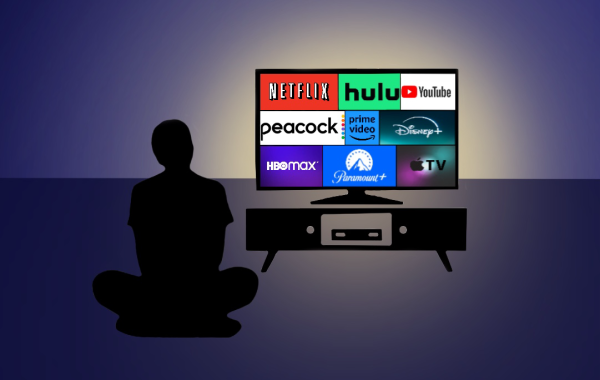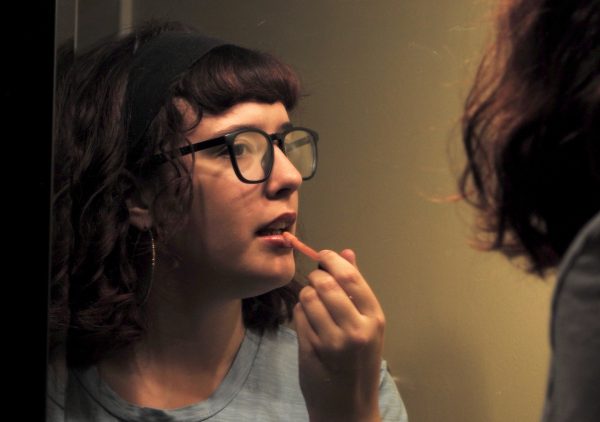Drop dead dehydration
Drinking the proper amount of water can prevent serious health scares

photo by Sam Bates
Senior Sam Bates stays hydrated as she drinks water in her car. It’s important for all students to stay hydrated throughout the day.
For senior Sam Bates, water polo practice may have began with sprints, but it ended in agony. As she was swimming during her practice, a wincing pain was coming from lower leg, continuing to trot through the water became a struggle as Bates used the last of her energy to get out of the pool.
Throughout a person’s life, they are always told to drink eight full cups a day of water. Although it’s something seemingly everybody knows, dehydration can be life-threatening. The importance of drinking water becomes even more critical when a person has an active lifestyle, especially when it comes to living in Florida.
“Through all of band camp everyone felt dehydrated because we were outside for really long periods of time,” sophomore Hannah VanHoozier said. “Some people had headaches and shortness of breath and it felt like we had no energy.”
The recommended amount of water a person should drink is half their weight in ounces. For example, if someone weighs 120 pounds, they should drink 60 ounces of water. It may sound difficult, but small adjustments to a person’s lifestyle can help them accomplish their goal. Keeping track of cups and ounces of water can be confusing, but there are many apps that record the amount of water consumed such as Daily Water Free and Carbodroid. Another way is to set timers as a reminder to drink water throughout the day.
Carrying a bottle to school, work and practice will allow a person to drink water no matter where they are. Water can also be consumed by eating water-dense foods like watermelon, cucumbers and celery. Doing small things can help to prevent serious consequences.
Athletes use more energy since they are constantly moving and therefore perspire more heavily to keep their body cool. Coaches of various teams have seen multiple cases where students couldn’t play in practice or in a game. Some extreme cases have occurred when athletes have fainted.
“Players have cramped up and had to come out of games for extended periods of time,” basketball coach Josh Kohn said. “Keep in my mind that we are in Florida where temperatures are in the 80s and 90s and you will lose even more fluids in this environment.”
The idea of drinking enough water is simple enough; however, over half of teenagers do not get the amount of water that they need, according to American Journal of Public Health.
Teacher Jose Vasquez, who runs the JROTC program, has personally experienced cases where students don’t get the right amount of water.
“I have seen many instances when the students weren’t hydrated inside the classroom or during practice after school and the consequences were very bad, like passing-out and throwing-up,” Vasquez said. “Sometimes, they even end up in the emergency room.”
Dangers associated with not drinking enough water can be more extreme than just having a headache. A person can become weak, dizzy, confused, have palpitations and even faint. These symptoms can occur faster and harsher when a person is involved in sports.
“At Hagerty we all highly encourage hydration 150 percent every second to prevent potential accidents,” Vasquez said.
Drinking water prevents negative effects, but it also comes with it’s own benefits. A person who drinks lots of water performs better, loses more weight, and is less cranky. Being dehydrated can negatively affect a person’s mood, so if they drink more water they will be happier and think clearer. Also, drinking a cup of water before a meal can act as an appetite suppressant.
“I try to make sure I drink two water bottles a day so I don’t get dehydrated again,” Bates said.
Your donation will support the student journalists of Hagerty High School. We are an ad-free publication, and your contribution helps us publish six issues of the BluePrint and cover our annual website hosting costs. Thank you so much!







Dan | Feb 12, 2017 at 6:50 pm
Sam Bates isn’t on the water polo team this year and wasn’t on the team last year either